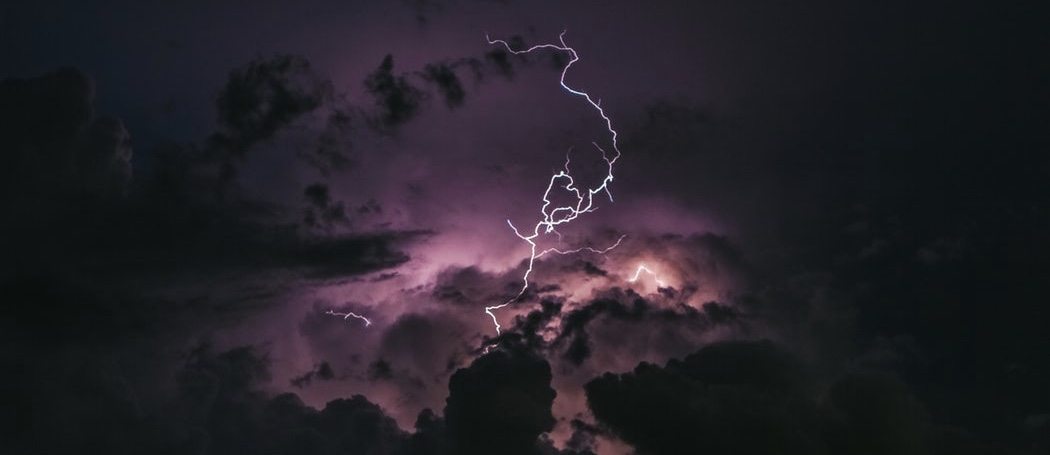What happens when a hurricane hits your year abroad destination?
I arrived on the beautiful island of Puerto Rico on September 1, to begin what I thought would be a normal year abroad experience. But it was not meant to be. I only lived on the island for four weeks, yet I experienced things that most people will never encounter in their entire lifetimes.
On September 6, the small island was hit by hurricane Irma, the strongest hurricane observed in the Atlantic since 2005. Nonetheless, the damages were not as terrible as initially expected. Although we experienced power cuts and no water (in my halls of residence the international students were told to buy canned food, gallons of water, and sleep on the second floor in the accommodations hallway), the recovery after Irma was swift. Within a couple of days, all power was restored to our area, and classes restarted.
The only way to charge our phones was by going to the local Burger King, which had a power generator still running.
No one could have suspected that the worst was yet to come. Hurricane María, the strongest hurricane that any generation of Puerto Ricans alive had ever seen, slowly edged its way to the island. It fell on September 20, laying waste in its wake. We followed the procedures as we had done for Irma, naively thinking that the recovery would be similar; that everything would be back to normal as soon as the hurricane had passed.
We were wrong. From September 20 to the October 1– the day I left the island– Puerto Rico continued to live without electricity. No one was able to cook anything, and the only way to charge our phones was by going to the local Burger King, which had a power generator still running. Due to the fact that the entirety of the island had lost electricity after the hurricane, there was no signal and scarce internet. You could not take a shower, you could not even flush a toilet. Walking around hot, sweaty, and dirty all day was frustrating, tiring and extremely uncomfortable. The lack of electricity meant that when water did return, we were told to not drink from the tap due to it being contaminated with cholera. Even the sea water that surrounds the island had been contaminated with chemicals which made it dangerous to swim in.
We would hear stories; rumours about when classes would start, how many people had died, whether the electricity would come back.
Nevertheless, my experience in Puerto Rico was one of the better ones. Luckily the area I lived in was not as greatly impacted by the hurricane as the rest of the island. There were many fallen trees, and a few offices in the university of Puerto Rico, Río Piedras, which I attended, were destroyed. But the majority of the area was intact and without flooding.
However, others were not so lucky. I heard stories of people who lived close to a dam having to be evacuated due to the threat of flooding, and of people who had no access to clean water and so had to drink from the neighbouring river.
The worst part of living in Puerto Rico during that time was the uncertainty. Due to the lack of communication, not many people knew what was taking place on the ground. We would hear stories; rumours about when classes would start, how many people had died, whether the electricity would come back. But without solid facts, nor statements from the government or university, we were stranded, caught between two decisions that no one wanted to make: to go home and cancel your year abroad, or stay and wait for things to get better.
Drug traffickers and other criminals were taking advantage of the lack of electricity to perform their illegal practices.
There was also the boredom. With little available for us to do, our daily routines grew increasingly monotonous: get up, go to burger King, charge phones, go to the bar and buy a beer, then go home.
I was made aware that despite the many desperate people on the island who were struggling to survive day by day, drug traffickers and other criminals were taking advantage of the lack of electricity to perform their illegal practices without detection.
Overall, I had an unforgettable experience in Puerto Rico. Although I felt very disappointed to have to leave the island, for me, it was the right thing to do. I know that one day I will return to the beautiful paradise island in the Caribbean, but my heart is heavy to know that a place that I grew to love has gone through such a trying situation that is beyond anyone’s control.
The trees are starting to bloom again– nature is recovering and so will the island.
It’s been six weeks since the storm, and the island is gradually recovering, though it still feels the repercussions of such a destructive event. The great majority of businesses and residences in Puerto Rico still don’t have power. Natalia Paola Figueroa, a fellow year abroad student who decided to stay in Puerto Rico told me that “the island is improving little by little and the only way to achieve perfection is with patience and time.”
Another friend who still lives in the island, Tatiana Melendez, has remarked that, although she has had to buy new clothes all the time because she couldn’t wash anything, “the trees are starting to bloom again—nature is recovering and so will the island.”

Comments